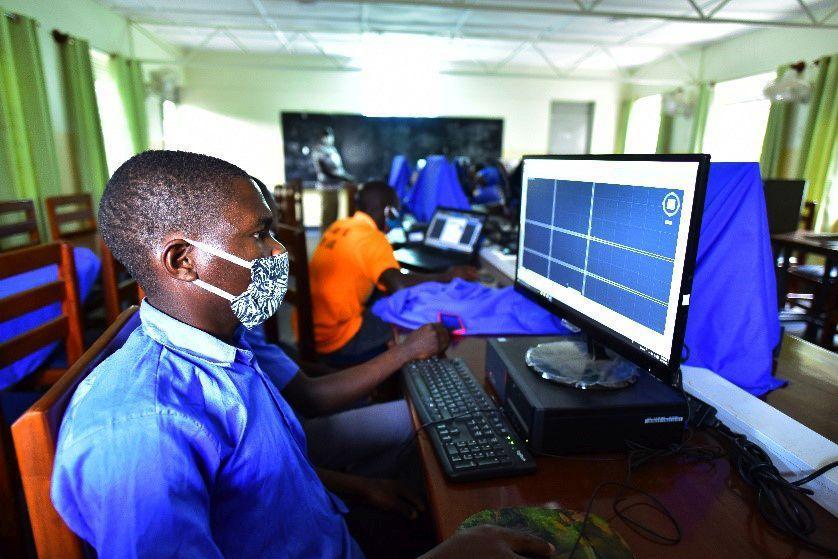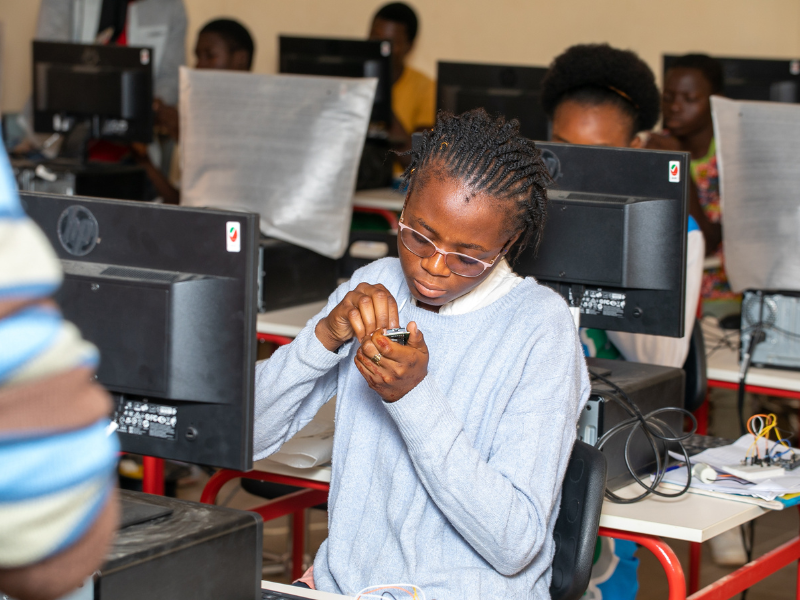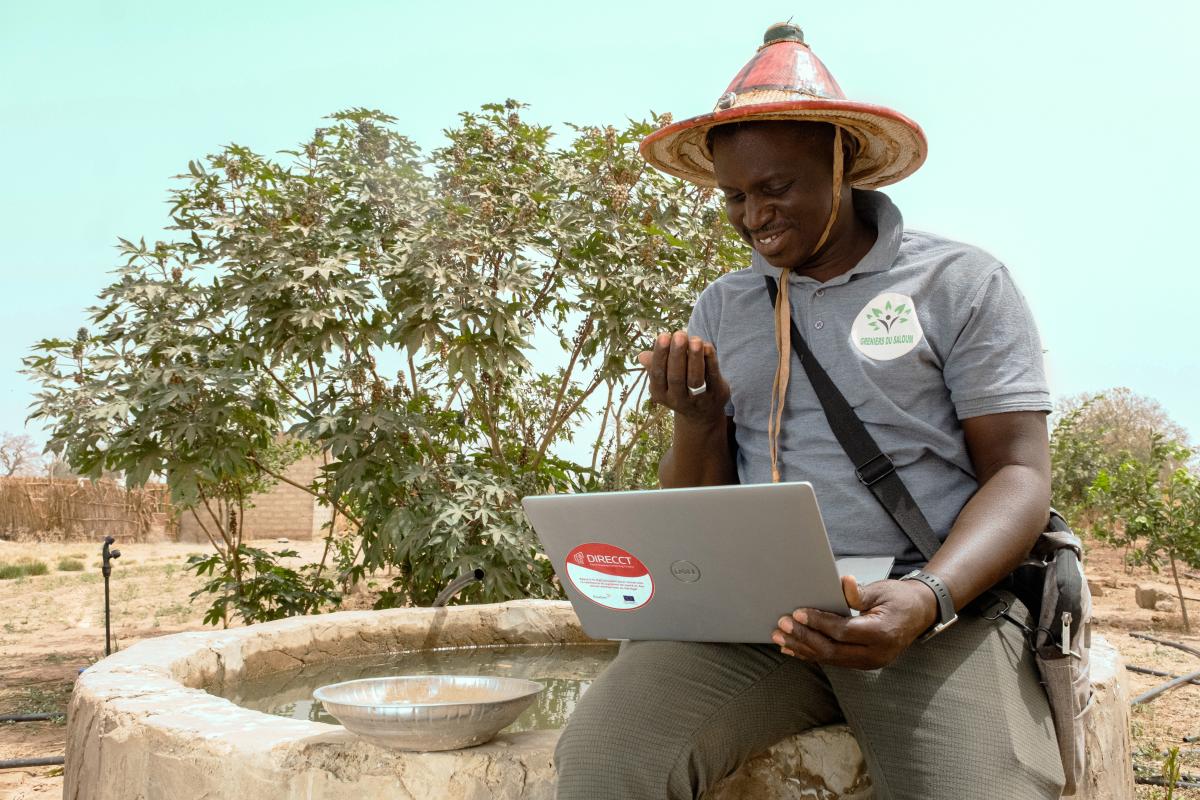Search
Viewing 1 - 3 of 3 evaluations
-

SG+ Project (Skills and Attitude (S&A), Governance and Anti-corruption (G&A), Covid19 Response (C19))
Victoria DEOM | 29/10/2025 2025 | Particip-technopolis
Evaluation on the Skills, Attitudes, Governance and Anti-Corruption Project (SG+) is a pilot initiative with a total budget of 5,000,000 EUR, financed by the European Union under the Inclusive Green Economy Uptake Programme (GreenUP). It was implemented by Enabel in collaboration with the Private Sector Foundation Uganda (PSFU), a leading private sector body. The project addresses key constraints to Uganda’s business environment and aims to bolster a constructive dialogue on economic reforms. Its overarching goal is to help make the business environment more conducive to inclusive and green investments by increasing the supply of qualified workers and strengthening private sector-led initiatives to fight corruption. The two specific objectives were to equip graduates entering the labor market with adequate skills and attitude for productivity in companies engaged in the green economy, and to improve evidence-based dialogue and advocacy within the private sector to combat corruption. Key results included making a Work Readiness Program (WRP) accessible to young graduates, enhancing the capacities of private sector companies in e-procurement, and implementing corruption reporting mechanisms.This End-Term Evaluation was conducted for the dual purpose of accountability and learning, seeking to identify project achievements and generate insights for future programming. The evaluation covered the full implementation period, from December 2020 to December 2024, and spanned all communities across Uganda where activities took place, including Kampala, Mbarara, and Wakiso. The analytical framework relied on a comprehensive assessment of all six DAC criteria. The evaluation specifically focused on the two project components: the Work Readiness Program (WRP) and the Governance and Anti-Corruption (GAC). Further cross-cutting issues examined included the project’s integration of Gender Equality and Environmental sustainability, and its contribution to promoting decent work and accountability within companies and public institutions.
-

Digital for Girls and Women project (D4GW)
Victoria DEOM | 18/09/2025 2025 | Particip-technopolis
End term evaluation of the Digital for Girls and Women (D4GW) project, with a budget of €2.25 million financed by the Belgian government and implemented by Enabel, aimed to promote an inclusive, rights-based digital transformation across Belgium, Burkina Faso, and Uganda. Conceived as a pilot initiative, it was carried out in a context marked by security constraints (notably in Burkina Faso) and persistent gender gaps in digital access. Its objectives were to (1) economically empower women through increased access and better use of digital technologies and (2) empower people, especially women and girls, to claim their digital rights.This final evaluation was conducted for both summative and formative purposes, supporting accountability and generating learning for future scaling. It covers the implementation period from 2022 to 2025. The analytical framework relied on all six OECD-DAC criteria. These criteria were complemented by an analysis of gender integration, which is central to the project, as well as an in-depth analysis of implementation management in a multi-country and multi-stakeholder context. The thematic analysis focused specifically on coherence with national and international policies, the effectiveness of digital skills training models, and the key sustainability factors for the results achieved, given the pilot nature of the project.
-

Projet ACP-DIRECCT
Victoria DEOM | 02/05/2024 2024 | COTA-AEDES
Le projet examinée est le programme Digital Response Connecting CiTizens (DIRECCT), géré par Enabel (Agence belge de développement) en partenariat avec l'Agence française de développement (AFD). Ce programme est financé par l'Union européenne avec un budget total de 5,4 millions d'euros pour la composante Enabel/Wehubit. L'objectif général de DIRECCT est d'améliorer la résilience des pays partenaires face aux crises sanitaires et économiques, notamment celle de la COVID-19, en s'appuyant sur le développement et l'adoption du numérique. Le contexte d'intervention est multisectoriel et géographique, couvrant les secteurs de la santé, de l'éducation et de l'entrepreneuriat au Sénégal (Thiès, Diourbel, Fatick, Kaolack et Kaffrine) et, dans une moindre mesure, en Ouganda (via le programme Wehubit). Le projet a été lancé dans une période post-crise caractérisée par des défis logistiques et des besoins urgents en digitalisation. Les objectifs spécifiques, ou Outcomes, tels que définis dans le document, sont :Les services de connectivité sont améliorés pour les bénéficiaires ciblés afin d'améliorer leur capacité à fournir des services pendant la crise de Covid-19.Les services numériques sont renforcés pour favoriser la continuité et la qualité des services d'éducation et de santé.Les micros, petites et moyennes entreprises (MPME) sont accompagnées dans leur transition numérique et assurent la continuité des activités pendant les pandémies.L'évaluation a été menée en mars 2024 dans le cadre d'une revue finale externe. Sa finalité était triple : assurer la redevabilité envers l'Union européenne et les partenaires nationaux, faciliter l'apprentissage organisationnel pour les actions futures, et éclairer la prise de décision concernant une éventuelle phase d'extension. La période couverte s'étend du démarrage de l'intervention, le 30 septembre 2021, jusqu'à sa phase de clôture imminente.L'analyse s'est structurée autour des six critères d'évaluation du CAD de l'OCDE. Des axes transversaux ont complété cette approche, notamment l'étude de l'adaptabilité du projet face aux contraintes, l'examen des synergies créées avec d'autres interventions, et l'évaluation de la prise en compte de la dimension genre. Les régions et les secteurs ciblés étaient les volets Santé et Entrepreneuriat au Sénégal (Sine-Saloum et Bassin Arachidier) et les projets Éducation en Ouganda.
